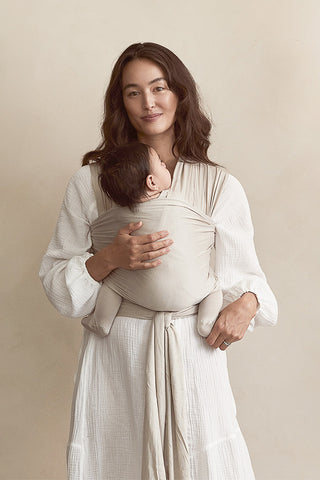
During COVID lockdown, I spent the majority of my time (like many of us) decluttering my physical spaces and learning many lessons along the way. One of the most unexpected lessons I learned is that clutter isn’t just physical; it takes up emotional space, as well.
Here are some ways I have chosen to let go of both physical and emotional clutter and make space for simplicity in the day-to-day routine.
Let go of projects and materials
I love a good DIY project and I have big dreams for my DIY Pinterest boards. Over the years, I have collected a laundry list of projects that I aspired to create along with the materials needed to do so. As more pressing responsibilities took priority over my Pinterest DIY board, those projects were put aside. The materials for the projects continued to take up physical space and any time I saw them, I was reminded of my desire to create that project, which brought on a sense of failure, stress or reminded me of my lack of time.
I finally decided that it was OK that I never created that scrapbook or made those homemade bath bombs and that I would ultimately feel better if I gave myself permission to move on. I purchased a small clear tub and allowed myself to keep any materials for future projects that fit in the tub—everything else was donated.
Stop dusting books
I love reading and finding new books. Sometimes I am so eager to read a new book, I purchase it before I am ready to read it. This has resulted in a pretty solid collection of unread books in our home, which take up a lot of space. I let go of 90 percent of our other books and decided that if the time comes when I am ready and excited to read one of those books, I can always request a copy from the library. Until then, I’m not letting them hold a space in my home for me to dust or a space on my never-ending list of to-do's anymore.
Unfollow the noise
Sometimes we may find ourselves carrying the emotional clutter of someone else on the other side of a screen. All you need to do is click “unfollow” or “mute.” You can always follow that account again, but while you are simplifying and quieting your mind to understand what emotional clutter is taking up your energy, it might benefit you to give yourself some breathing room. If you still crave the energy, substance, imagery or whatever it was that was benefiting you from that account, then you will find your way back when you are ready.
Next time you find yourself struggling to rid yourself of clutter of any sort, ask yourself these questions.
- What precisely am I sentimental about? When you’re evaluating an item, this is the very first question you should ask. If the answer is about an association with a person, place or event, chances are your sentiment isn’t about the object itself, but rather the memory. The memory will stay with you, even if the object doesn’t. Unless you really love the object itself, it’s OK to get rid of it.
- Am I holding onto this out of obligation? We all know those gifts. The blanket grandma made for you. The custom art piece your mother-in-law expects to be displayed in your living room. Many people hold onto gifts out of obligation, rather than because it’s something they actually love. This is a tricky one, but the fact of the matter is: you don’t have to keep something just because someone gifted it to you. And you certainly don’t have to keep it on display—that expectation is unfair. If it’s just going to sit in storage forever, donate it to someone who will actually use and enjoy it.
- Am I holding onto this out of guilt? Family heirlooms are often a source of contemplation when it comes to minimizing clutter. Yes, Aunt LouAnn's dining set has been in the family for generations, but your house is too small for an eight-person solid wood table and chairs. If you’re holding onto items out of familial guilt, reach out to other family members and see if anyone else is interested in the items. If not, you can donate them.
- Am I prepared to display it, care for it, use it, wear it, play with it, read it, whatever action it needs? If you answered ‘yes,’ then you can keep it. If it’s just something you’re going to stuff in the garage for another 365 days, it’s time to set it free.








